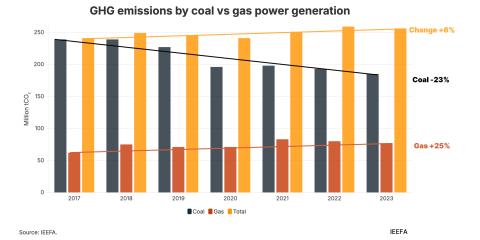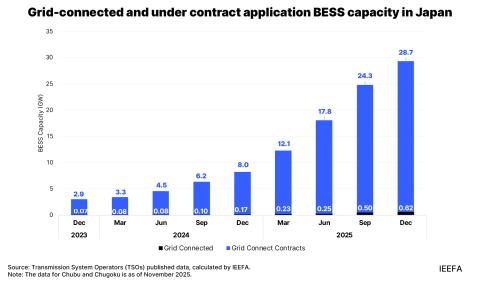Private equity's losing bet on PJM coal plants
Download Full Report
View Press Release

Key Findings
This is shaping up to be an extraordinarily difficult year for the private equity firms operating in the PJM power market—especially those that own some of the region’s aging coal-fired power plants.
One key financial support, the price PJM pays for capacity (essentially a payment that power plants receive for promising to be available when needed), will drop from $140 per megawatt-day to just $50 this month for the 2022-23 delivery year. This will reduce revenues for generators across the board, but it is particularly troublesome for the region’s coal plants, which are struggling to remain competitive in the day-to-day energy market as well.
Executive Summary
The degree of financial distress is already evident, even before the looming drop in capacity payments. For example:
- Talen, which owns four coal-fired power plants in PJM and has stakes in two others, filed for bankruptcy in May. Riverstone, a major private equity (PE) firm, took Talen private in 2016.
- Lightstone, the firm backed by private equity firms ArcLight and Blackstone that owns the two-unit, 2,680-megawatt (MW) Gavin coal plant in Ohio, has approached its lenders about extending the repayment date of its $1.7 billion loan by three years.
- The owners of Homer City, a three-unit, 1,888MW coal-fired facility in Pennsylvania, which has already gone through bankruptcy twice, said earlier this year they might have to close one or more of the plant’s boilers. They have since backtracked, but the plant’s capacity factor has averaged less than 30% since the current owners took control in 2017—a clear indication of its relative uncompetitiveness.
- In March, Atlantic City Electric received New Jersey regulatory approval to buy out the contracts of two private equity-owned coal-fired cogeneration plants, a deal that will close the last two coal plants in the state at the end of May and save ratepayers millions of dollars, according to the utility.
The problems are particularly noteworthy given the recent runup in natural gas prices. Coal generation across PJM through the first four months of 2022 is lower than the 2021 figure, even though overall demand in the region is up, another indication of the sector’s growing economic difficulties.


















